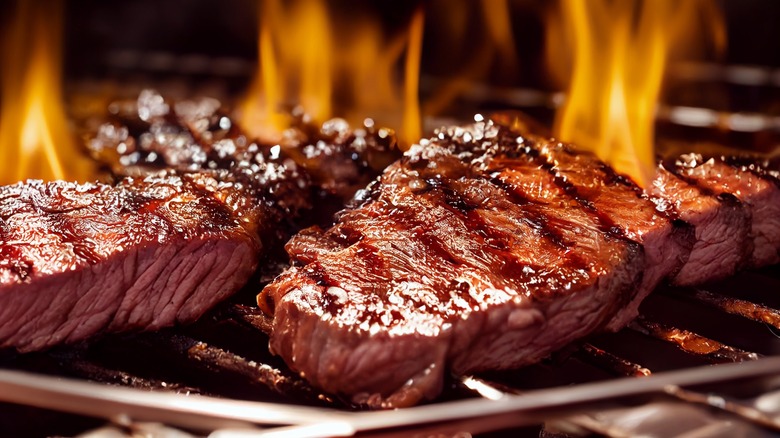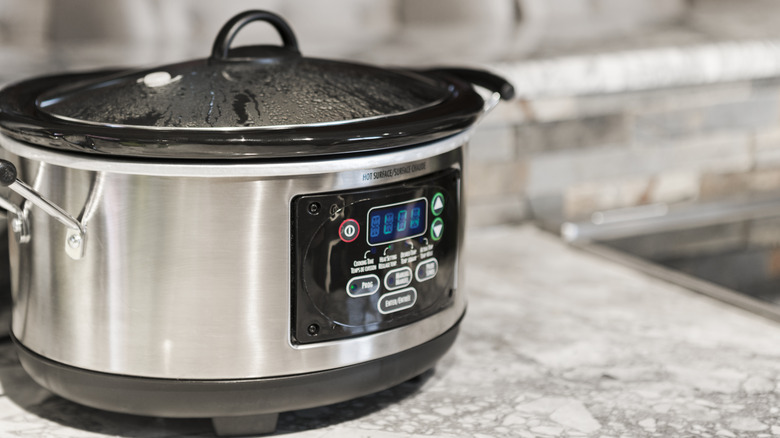How Meat Benefits From A Dip In The Slow Cooker Before It Hits The Grill
If you've heard of reverse searing a steak or other types of meat, there's another technique that's essentially the same thing, at least in theory. What we're talking about here is precooking your meat before grilling — but instead of using an oven, as is typical with reverse searing, you'll be pulling out your trusty slow cooker and heating up the grill. The goal is ensuring your meat is fully cooked, tender, and juicy while still carrying those deliciously smoky grill marks and barbecue flavor.
These two beloved cooking appliances share the glory when meat hits plates, cooked to perfection, with plenty of hands-off time for prepping side dishes or chatting with friends and family. There's no more worrying about grill temps, raw spots in the meat, over-smoking, or gauging meal times with the sometimes finicky nature of outdoor grilling. The method works especially well with thick steaks and hefty sausages, but also whole chickens, half or quartered hams, or any bone-in meats that may cook unevenly.
However, any cuts of meat benefit from time in the slow cooker, including ribs headed for the smoker or grill and kebabs skewered with quicker cooking vegetables. You want the meat gently pre-cooked, not overcooked, so a slow cooker is particularly useful compared to a hot oven. Unless you'll be making something like shredded beef tacos, barbacoa, or pulled pork, be sure to check the slow cooker periodically, removing the meat before it gets overly soft. You still want those crispy grill marks!
Thoughts on precooking and grilling meats
If you're now sold on the idea of cooked meats finding their final glory on the grates of a grill, there are a few things to keep in mind. The meat can be prepped and cooked one or more days ahead, and it's gloriously hands-off in the slow cooker or Crock-Pot, yet easy to check in from time to time. But it's crucial that the meat is fully cooked before transferring to the refrigerator. Partially cooked meats, whether beef, poultry, pork, lamb, or others, can be breeding grounds for bacteria to grow. That growth can begin before reaching the fridge, especially if it's spent any time in the "danger zone" of temps between 40 and 140 degrees Fahrenheit. Once toxins build up, they're unlikely to be eliminated by subsequent cooking on the grill.
Many recipes are adaptable to this surefire method of attaining perfectly grilled meats. For instance, tips for boiling sausages focus on retaining the fat inside the casing, ensuring moistness and enhanced flavor. Heating them in a slow cooker serves the same purpose, and a quick sear on the grill afterward adds smokiness and a char.
This recipe for baked and grilled baby back pork ribs, created by Tasting Table recipe developer Taylor Murray follows the same principle. But instead of baking the ribs, try tossing them in the slow cooker. Murray suggests applying rubs before cooking, but saving glazes for when the ribs hit the grill grates.

